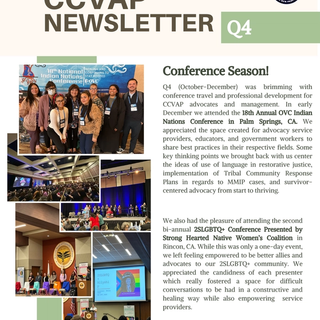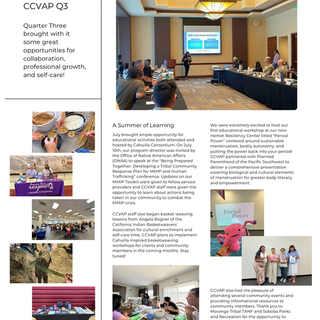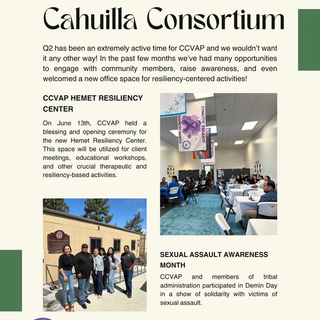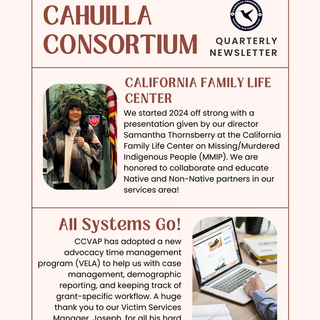Keeping our
people safe.

What we do
It is our objective to promote the safety and well-being of our Native communities.
We work to end all victimization against our tribal people through advocacy and education efforts that include prevention, intervention, and the fostering of resiliency.
Live a life without violence.

What we can help you with
- Emergency short term & basic needs
- Emergency sheltering
- Transitional housing
- Transport / Public transportation assistance
- Small home repair & locksmith (limited)
- Burial / Funeral assistance (limited)
- Advocacy & therapy
Please talk to an Advocate to see how we may be able to assist in your healing journey and restoration. Call us at 1 (951) 392-1919 (24/7 hotline) or 1 (951) 763-5547 (office/center).
This list is a summary and is more of a snap-shot of what we can assist with. Every case is different and requires flexible planning.
Immediate safety
- Transportation to shelter/motel
- Provide emergency motel stay
- Provide emergency needs (food, baby items, toiletries, clothing, etc.)
- Transport to other providers to obtain resources (Medical, BHS, Tribal Resources…)
Emergency housing
- 30-90-day shelter stay at an area shelter
- Transportation to obtain services (Cal-Fresh, Medical, TANF, IHS, SSDI, DMV, CPS)
- Provide for: Groceries, Toiletries, baby items…
- Provide Fuel cards
- Provide short-term child care
- Assist with filling out and filing Protective Orders
- Provide court accompaniment
- In-house therapy
- Tele-therapy
- Group/support/talking circles (online)
Transitional housing
- Assist with procuring long-term housing (Provide Security Deposit)
- Assist with Utility hookup
- Can provide monthly utility assistance (payor of last resort)
- Assist with basic furnishings
- Assist with lock-smith service, “small” auto/home repairs as a direct result of a crime
- Advice on budgeting, cooking, cleaning, time management, paying bills, and other basic life-skills
- Referrals to other services (BHS, Educational Resources, Group/DV Classes, etc.
If you don’t see something listed that you need help with, please call and speak to an advocate. We may be able to offer support or refer you to another agency who can help.
Our service area consists of the four consortium tribal member communities within the four reservations. As well as the surrounding communities of Riverside County, San Diego County (north), and parts of San Bernardino County. Additionally, we will also provide services to non-native people in these service areas.
please note:
All services are confidential and free of charge, but are dependent on available funds. If funds are unavailable, we can work with you to find other resources.
Women
are
sacred.

Who we are
The Cahuilla Consortium is formed by the Los Coyotes Band of Cahuilla and Cupeńo Indians, the Cahuilla Band of Indians (Current Lead), the Santa Rosa Band of Cahuilla Indians, and the Torres Martinez Desert Cahuilla Indians.
We have been advocating for Victims of Domestic Violence, Sexual Assault, Stalking, and Sex/Human Trafficking since 2010. We can now assist victims of crime.
Each Tribe is represented on our Advisory Committee:
- One delegate from each of the Consortium Tribes
- A representative from California Indian Legal Services
- A representative from our local Indian Health Clinic
*The Advisory Committee meets monthly to provide policy guidance and to serve as a conduit to the tribal communities.
Meet our team
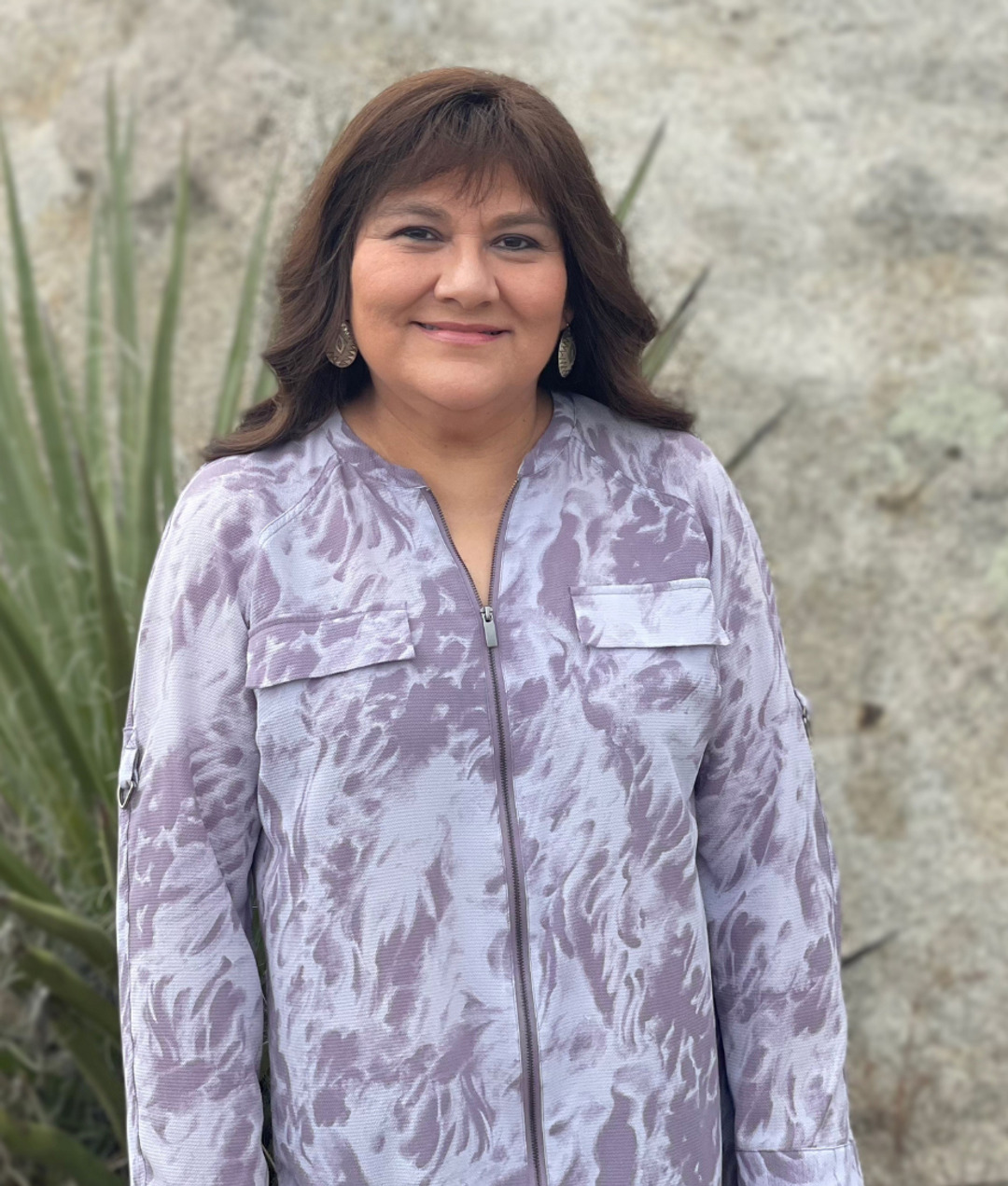
Samantha Thornsberry
Program Director
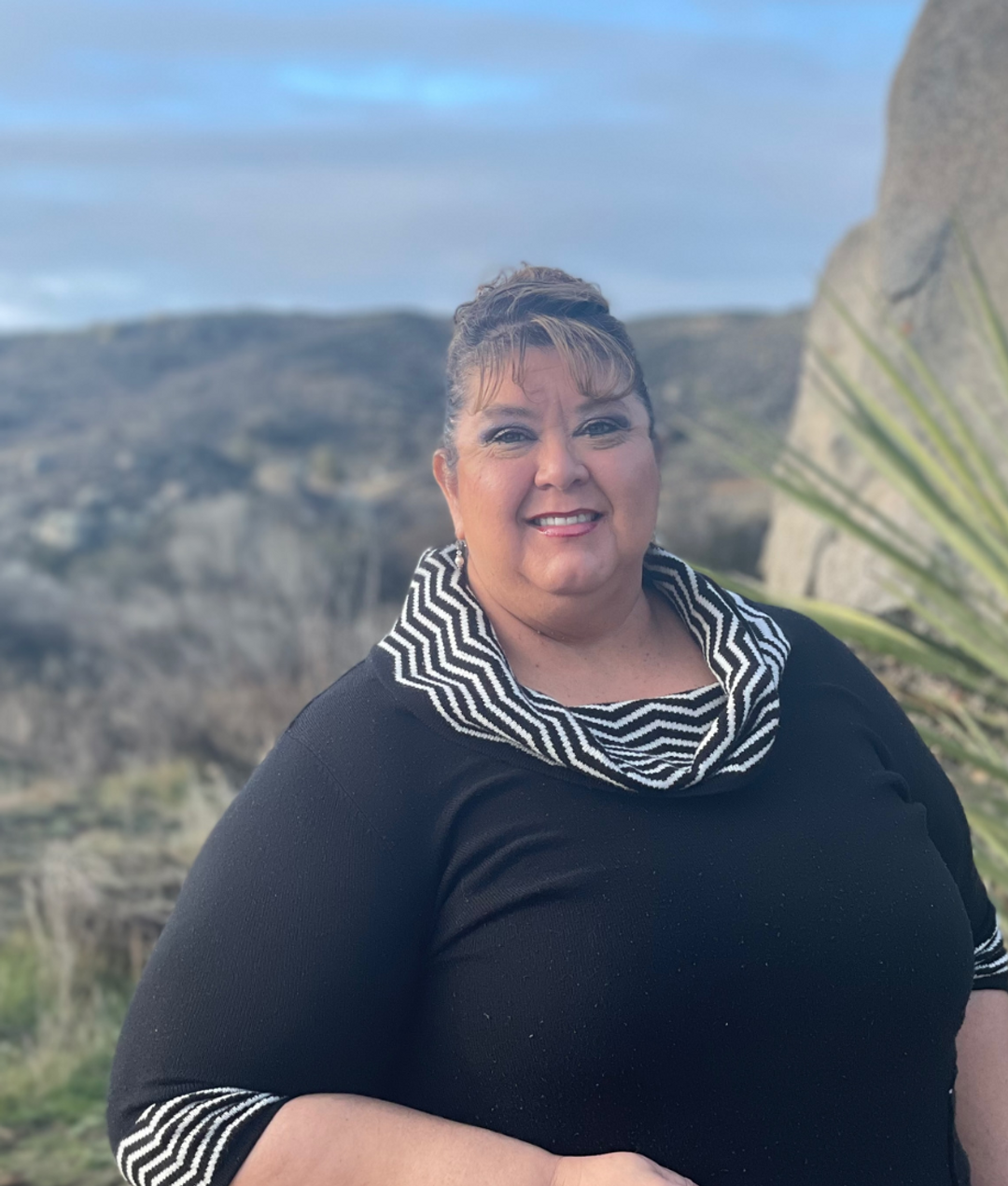
Patricia Lerma
Office Manager

Joseph Saenz Yanez
Victim Services Manager
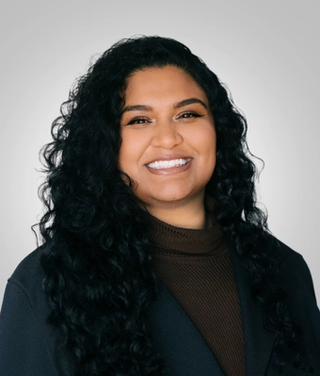
Anu Watts
Outreach, Prevention, & Education Coordinator
Mission
It is our mission to promote the health, safety, and well-being of our community members who have been victimized by violence.
Values
- - Education
- - Housing
- - Respite
- - Vocation
- - Community
- - Culture
Advocacy
We work diligently to end all victimization against our tribal people through advocacy and education efforts that include prevention, intervention, and the fostering of resiliency.
Love
should
not
hurt.

Faq
If you don’t see something listed that you need help with, please call and speak to an advocate. We may be able to offer support or refer you to another agency who can help.
Generally, domestic violence is a pattern of behavior, including physical violence or sexual violence, by an intimate (current or former) partner. It is seen in both male/female and same sex partner relationships.
Domestic violence takes many forms and includes a range of actions intended to control:
Red flags
- - using children
- - emotional abuse
- - economic abuse
- - coercion and threats
- - minimizing, denying and blaming
- - cultural abuse
- - ritual abuse
- - male privilege
- - sexual abuse
No.
We can help you and assist with mediating with CPS.Be sure to tell your Advocate that you have a CPS case open, so that we can better understand you and your children’s needs.
Remember, every human being should be treated with respect. Women are sacred. When something is held as being sacred, it is to be respected, honored and held with high regard of its power. This means that when you are treated with respect, you are being given messages in words and actions that show you that you are valued, loved, and treated with care. Every human being should be able to expect this from their intimate partner, husband, wife, boyfriend, or girlfriend.
Unfortunately, we cannot represent you in court, as we are not attorneys, however, we can refer you to a legal aid resource. Also, we cannot pay any past due bills or fines or fees on any judgments or tickets.
No.
We can assist victims of crime, which could encompass a number of different types of crime. Additionally, we assist sexual assault, human trafficking, and stalking survivors. If you are a victim of a crime or assault, please call and talk to an Advocate so that we can assess your situation and how we can help.
Remember that the most recognized form of domestic violence is physical violence, which may include hitting, punching, slapping, strangling or kicking. However, domestic violence can also encompass verbal abuse, psychological abuse, financial abuse, spiritual abuse, and cultural abuse. At the heart of the domestic violence is power and control. If you think you need help, but you may feel unsure about what kind of help you need, call and speak to one of our Advocates, who can talk with you about your situation. We are here to help you, when you are ready.
Office Hours: 9AM to 5PM, call 951-763-5547
After Hours: 951-392-9818
No.
We assist anyone who calls us. As long as we have available funding, we will help you. However, we do give priority to those tribal communities that we receive funding on behalf of (Cahuilla, Los Coyotes, Santa Rosa and Torres Martinez).
No.
This is not required. However, if you need to obtain a restraining order, we can help you do this by helping you fill out the paperwork, transporting you to court, and going with you to provide emotional support. It’s good to know that most of the RO paperwork can now be done online.
No.
But, the Advocate will be asking questions about when and where the assault or crime took place. It is helpful if you do have a police report to mention it, but this is not a requirement to obtaining services.
- Have you ever been hit, slapped, kicked or punched by your partner?
- Have you every been choked or strangled by your partner?
- Is your partner asking you questions about whether you are faithful or is he/she expressing jealousy?
- Are you starting to feel like you are losing your relationships with family and friends because of your partner’s actions?
- Has your partner ever threatened to hurt you to get you to do something?
- Has your partner ever hurt you?
- Has your partner ever hurt your pets?
- Has your partner ever destroyed your property or things you care about?
- Has your partner ever tried to stop you from going to school, work or doing things you like to do?
- Has your partner ever forced you to have sex when you did not want to?
- Does your partner regularly insult you?
- Are you ever afraid of your partner or of going home? Does he/she make you feel unsafe?
- If you answered “yes” to any one of these questions, please call and speak to an Advocate.
